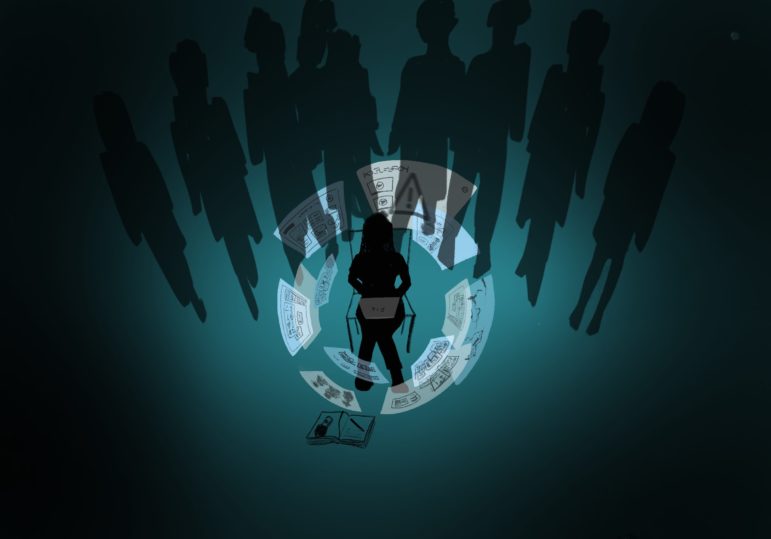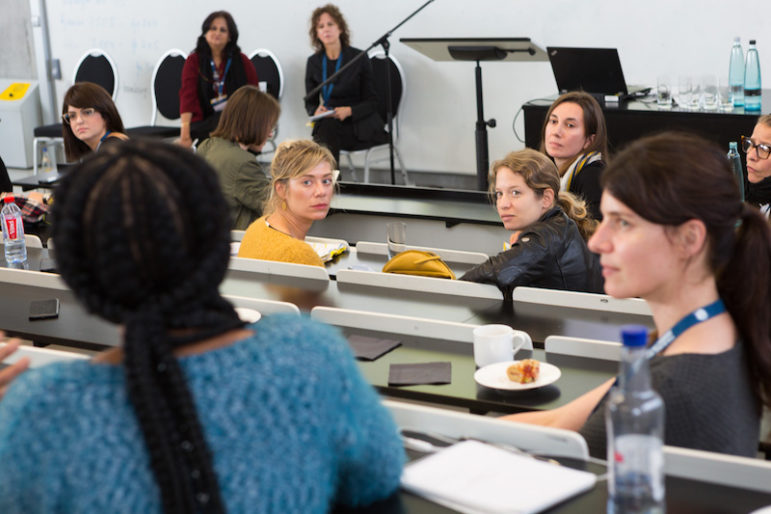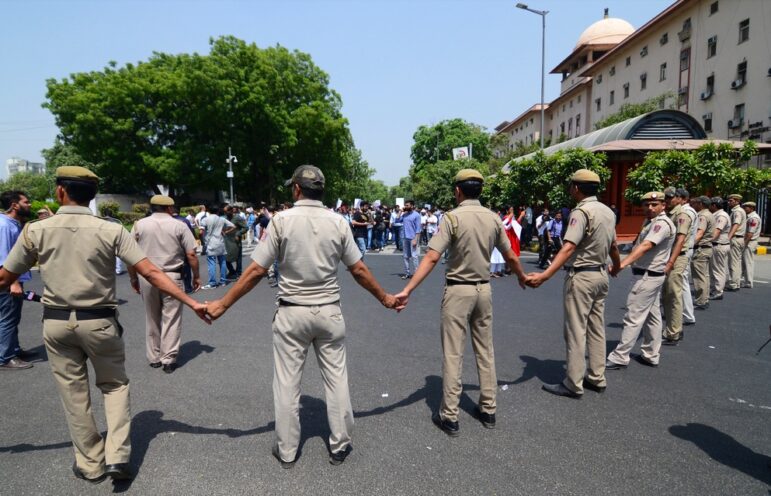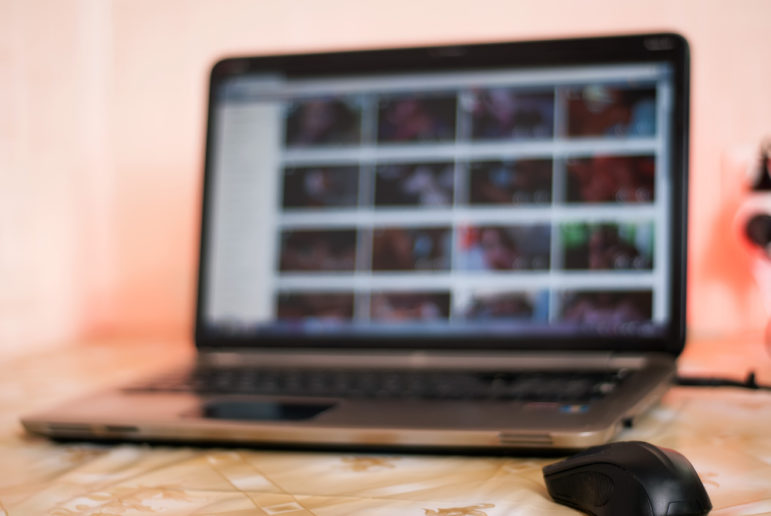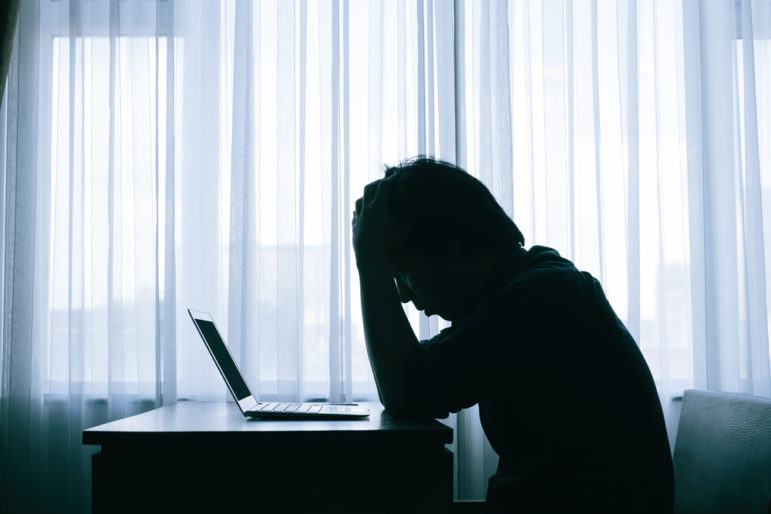Safe Haven: Investigative Reporters Seek Time Out to Rest and Recuperate
Read this article in
For one investigative reporter, the final straw was a bombardment of abusive, late-night phone calls from strangers threatening to “destroy” her. For another, it was when she felt that a hate campaign had turned the public against her when all she was trying to do was investigate corruption.
Journalists come under attack on a weekly basis: from physical violence to assaults on their reputations, and from legal challenges to burnout. For investigative journalists, who often report on stories that embarrass those with power, the stakes can be even higher.
For these two journalists, one way to escape from the pressure – to recover, and recoup – was to take a break from deadlines, seeking time out from the job to look after themselves.
Both have attended the Berlin-based Rest and Refuge Fellowship, set up in 2015 as a joint project between Reporters Without Borders Germany and the taz Panter Foundation. This program allows journalists to take a break from reporting, gain some emotional distance from their job, and undergo resilience training and psychotherapy. Despite being one of several fellowships of its kind, demand far outstrips supply.
“We witness a great influx of urgent requests from all over the world,” says a representative from Reporters Without Borders, citing press freedom crises in Turkey, Syria, Afghanistan, Ukraine, Belarus, and Russia.
While the fellowships are not exclusively designed for investigative reporters, the nature of these journalists’ work means they make up a sizable part of the cohort. Fellows with an investigative reporting background have come from South America, South and West Asia, and Eastern Europe.
The global figures pointing to the number of journalists who are targeted or at risk are stark. This year alone, 46 journalists and four media workers have been killed, while 194 journalists and eight media workers have been imprisoned, according to Reporters without Borders. Other forms of harassment — such as online trolling – are also a growing concern. Sometimes, getting out, even if only for a short time, is the safest option.
“Investigative journalists are more under threat from physical intimidation than ever,” says Elana Newman, research director at the Dart Center for Journalism and Trauma. In the 25 years she has worked with the center, she says the situation for journalists has completely changed.
“It used to be the case that journalists who showed their credentials would be protected. Now they are being targeted,” she says. “Many investigative journalists are rightfully hypervigilant. If you spend a lot of time in that state, your body is keyed up to respond to danger, and it takes a long time to shut that off once you are away from a dangerous situation.”

The Reporters Without Borders barometer shows the number of journalists and media workers killed year by year. With two months yet to go, 2022 could be the worst year since 2018. Image: Screenshot, Reporters Without Borders
From Serbia to Berlin
Serbian investigative reporter Dragana Pećo is one of this year’s Rest and Refuge fellows.
Pećo arrived in Berlin after many exhilarating but exhausting years as a journalist in Serbia, where she was part of the team that set up KRIK, a GIJN-member organization and an independent digital outlet focusing on corruption and organized crime.
“The last seven years have been very intense. So many projects. The Panama Papers, Pandora Papers, international stories,” she says.
What follows each new story is a barrage of attacks in local tabloids and on TV, smear campaigns, and terrifying anonymous threats on social media, she says. “You should all be lined up and shot,” was one comment the KRIK team received, she recalls. What’s more, the team had evidence suggesting that their workplace had been bugged.
“I couldn’t stand the atmosphere. I felt a lot of aggression from the public,” she explains. “When I was in the streets, it felt like people hated me, they recognized me… The government is pushing this narrative that we are betraying our country when what we are doing is publishing how they are spending our money.”
The experience has been as isolating as it is scary and nerve-wracking. Five years ago, Pećo’s apartment was broken into. Nothing was stolen, but her belongings were turned upside down. It was an act of intimidation, Pećo believes, and the experience heightened her anxiety and mistrust.
“That’s why I am here, I need to recover. I have health problems now, because of the stress,” she says. “I needed three months to wake up and be relaxed knowing that this is not Serbia, and no one is following me. And people in the streets, when they are looking at their phone, they are not secretly filming me, they are just texting someone.”
‘If Journalism Is Under Threat, then Democracy is Under Threat’
Like many investigative journalists, Salma entered the profession driven by righteous indignation. She had grown up observing rampant corruption and abuse of power, and had a strong desire to better her community.
“I’d notice that this bad thing was happening, and that bad thing was happening, that everywhere, people were doing bad things. And doing bad things to me, too,” she recalls. “I thought that what they are doing is wrong, and how can I stop this?’”
Salma – a South Asian journalist who requested we not use her real name or country of origin for security reasons – says her lightbulb moment came when she saw a note in her country’s most prominent broadsheet inviting civilians to write in with possible investigations.
Still a student at the time, she had noticed that a nearby school had been forced to close due to flooding. She had learned a local MP had received the funds to resolve the issue but had failed to do anything. So she sent the newspaper a letter.
Not long after, reporters arrived on the scene, and in a week, the problem was fixed. She has been committed to investigative journalism ever since and has produced a number of award-winning pieces for the national press.
The many risks Salma has faced as a journalist have paid off in terms of domestic and international recognition, but it has also brought a lot of unwanted attention, not only for herself but for her family. She has faced pressure and harassment from various directions, including after she lent her public support to another high-profile journalist who had come under attack.
“Four people wearing masks came in front of me,” threatening both her and her family with “trouble” she says, recalling one ominous incident that followed a story she had published. Another time, she received a series of phone calls at all hours, threatening to “destroy” her and spread a fake pornographic video of her.
“They were creating hell in my life,” she recounts. “I was getting sick little by little. I was not able to sleep, to eat properly, and my body became weak. It was too much mental pressure.”
When she earned a spot on the 2020 fellowship in Berlin, she was eager to get a chance to relax, regroup, build skills, and make contacts that might help her on her return to her country.
Space to Recover
Part of what makes the Berlin fellowship valuable is the promise that journalists don’t need to do any work at all; It’s a resilience-building period that gives them the space to reflect and turn their attention inward. Journalists arrive having experienced so much stress that their emotional and physical state is often quite acute. Participants often become ill in the first weeks of their stay, staff say, as they are finally able to let their guard down.
The inclusion of psychotherapy invites journalists to start processing some of their more difficult experiences. Such resources speak to the increasingly widespread literacy around mental health that is making its mark in the journalism world as the stigma of reaching out for help and support starts to lift.
This is a trend that Mexican investigative journalist Marcela Turati has also observed, and welcomes. She has wanted to set up a refuge for years. Featuring specialist trauma-informed therapists, it would support her peers who face enormous fear and trauma in a country where, in her words “we are like war correspondents in our own land.”
“There has been horrific violence for years,” she says about her home country, in which 36 Mexican journalists have been killed or have disappeared in 2022 so far — one of the highest figures in the world. “In many places, people are burnt out, heartbroken, losing the sense of what they are doing. They are broken inside. You lose faith, you lose empathy.”
One of Turati’s responsibilities at Quinto Elemento Lab, an investigative organization that she co-founded, is to support journalists covering Mexico’s crisis of missing people. That role sees her looking for therapies for exhausted reporters who are so used to such abnormal levels of stress that they stop feeling any fear at all.
“You start to normalize the stress and danger, disconnect from yourself and get too tired to take any measures of physical, digital, or emotional self-care,” she says. “This is a really big problem because sometimes you are under threat and you don’t perceive it because you are just too tired. So you choose to switch off your danger alarm. And that is really dangerous.”
A key part of the healing process, Turati observes, is having a space to feel safe and understood, and the opportunity to connect with people going through similar traumas under specialist, trustworthy guidance. For her dream refuge, she envisions a peaceful rural house where journalists can take advantage of various therapies to help work through what they have experienced.
“I am, of course, not the only journalist who is thinking this,” Turati says. “We have an entire generation of journalists who have to deal with these things, and we have to look for a communitarian solution because not everyone can deal with it individually.”
Fighting — and Riding — for Freedom

Just the freedom of riding a bike through Berlin gave Serbian reporter Dragana Pećo much needed respite from her stressful job as an investigative journalist. Illustration: Smaranda Tolosano for GIJN
In Berlin, both Salma and Pećo have leaned into that wider journalistic network while making a start at processing their experiences and turning their attention to their own needs and well-being.
For Pećo, that meant focusing on finding joy in the little things, and time for herself.
“When someone asks me what it’s like in Berlin, I’m like ‘I’m breathing’ because there is no air pollution and because I am breathing in the freedom of everything,” she says.
“My happiest memory was riding my bike through Berlin, without a map. I rode for six hours. Growing up, I would always ride my bike in my village in Serbia,” she recalls. “You feel a kind of breeze, and you don’t have to think of anything else. I felt almost like I was when I was 12. I felt so happy.”
The fellowship taught Pećo, who has since returned to work at KRIK, that she needs to find a better way of switching off from her job when she can. “I want to be less stressed. I need to find time for myself… We [journalists] just think about our job and stories, and we don’t think about ourselves as human beings,” she says. “We should invest in ourselves now before it’s too late.”
For Salma, her health quickly deteriorated when she arrived in Germany and worsened upon learning of her father’s death from a stroke. “I was really courageous until my father’s death,” she says. “I used to say, ‘Wherever I am, I will fight.’ But now, since my father died, I think ‘for whom should I fight?’”
She is now seeking asylum in Germany, and remains in poor physical health. But she’s also attending German classes, exploring courses in cybersecurity, and is determined to work again, once her family is safely out of her home country.
“They attacked me,” she says. “That means they are attacking democracy. If one journalist is under attack, that means, all journalists are under attack. We have to be united and support each other.”
Additional Resources
Resources for Reporters Coping with Trauma
Marcela Turati on a Career Spent Investigating Mexico’s Crisis of Missing People
GIJN’s List of Grants and Fellowships for Journalists
 Sarah Karacs is a freelance journalist based in Berlin. She was a fellow with the European Journalism Observatory, and her work has been published by CNN, Der Spiegel, the New Statesman, and the South China Morning Post. You can read her previous stories published by GIJN here and here.
Sarah Karacs is a freelance journalist based in Berlin. She was a fellow with the European Journalism Observatory, and her work has been published by CNN, Der Spiegel, the New Statesman, and the South China Morning Post. You can read her previous stories published by GIJN here and here.

